This post contains affiliate links from which I may receive a small commission, at no extra cost to you. In no way does this affect my opinion or the information I provide on the product. Please read my disclaimer for more info.
Written by Lucie Villeneuve, nutritionist, M.Sc.
While some people struggle to lose weight, others find it difficult to gain weight in a healthy way. Surprise surprise, eating tons of junk food in hopes of making the scale go up is not the way to go. So here are a few easy ways to help you in your weight gain efforts!
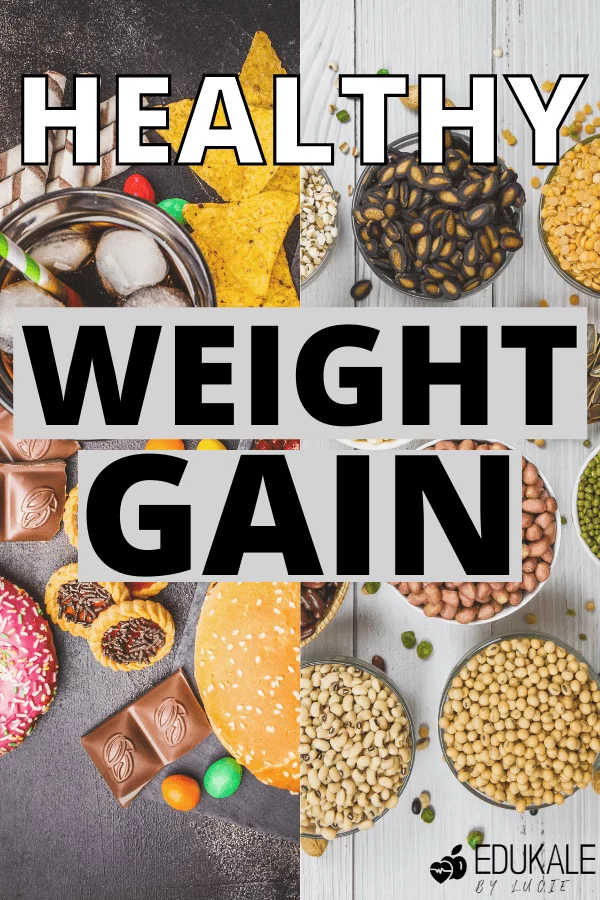
What are the consequences of being underweight?
Being underweight is defined as having a BMI <18 (even though the relevance of BMI is disputed!) It is associated with a greater risk of early death and can lead to more infections, bone issues, fertility issues, immune system issues, etc.
If you’re severely underweight, please seek help from a doctor, but if you’re just looking to gain a little weight in a healthy way, then here are a few tips for you.
How to eat for healthy weight gain
Start out with healthy balanced meals
Wanting to gain weight doesn’t mean that you should just fill up on junk food. I strongly believe that you should prioritize health over weight, whether that is losing weight or gaining it. You still need to be eating a lot of whole, minimally processed foods such as:
- Fruit and vegetables
- Whole grains like brown rice, whole-wheat pasta, oatmeal, buckwheat, bulgur, quinoa…
- Beans and legumes like black beans, kidney beans, white beans, chickpeas, lentils…
- Nuts and seeds
Focus on energy-dense foods
With that in mind, it’s important to focus on eating foods that are energy-dense, meaning that they will give you a lot of nutrients and calories without taking up too much space in your stomach. Great energy-dense foods include:
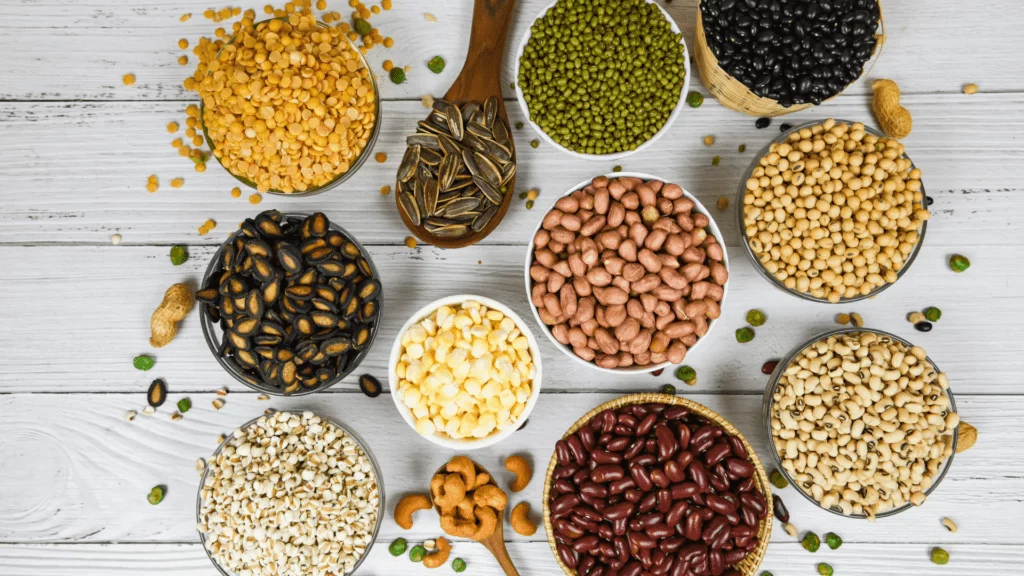
- Whole grains like brown rice, whole-wheat pasta, oatmeal…
- Starchy veggies like potatoes, sweet potatoes, squash…
- Nuts like almonds, brazil nuts, hazelnuts, macadamia nuts, peanuts, cashews, walnuts…
- Nut butter from any of these nuts
- Dried fruit like figs, raisins, dates, apricots…
- Seeds are also great to sprinkle over your food for an easy nutrient boost
- Oils like olive oil, avocado oil…Check out my article on which oils are best HERE !
- If you eat animal products, a lot of meats are high in fat and protein and can help with weight gain, as well as whole milk, butter, cheese, cream, etc.
- Other energy-dense foods include avocados, chocolate, granola, or trail mixes with nuts, dried fruit, pretzels, etc.
Watch the order you eat your food in
It’s important to be mindful of the order you eat your food in when trying to gain weight. You should try to start with the most energy-dense foods. If you start with foods that have a lot of volume and fewer calories, they will take up a lot of space in your stomach without helping your calorie intake. Then you’ll be less likely to have enough room for the energy-dense foods that can actually help with weight gain.
Sneak in more ingredients into your meals
When trying to gain weight, it can be helpful to sneak in certain ingredients into your meals without it requiring a huge effort. For instance, you can add an extra egg to your omelet, extra cheese in your pasta, an extra spoon of nut butter or of avocado on your toast, eat a bigger banana, add more seeds to your dishes, more olive oil to your salad, more honey in your yogurt, more cream in your coffee…
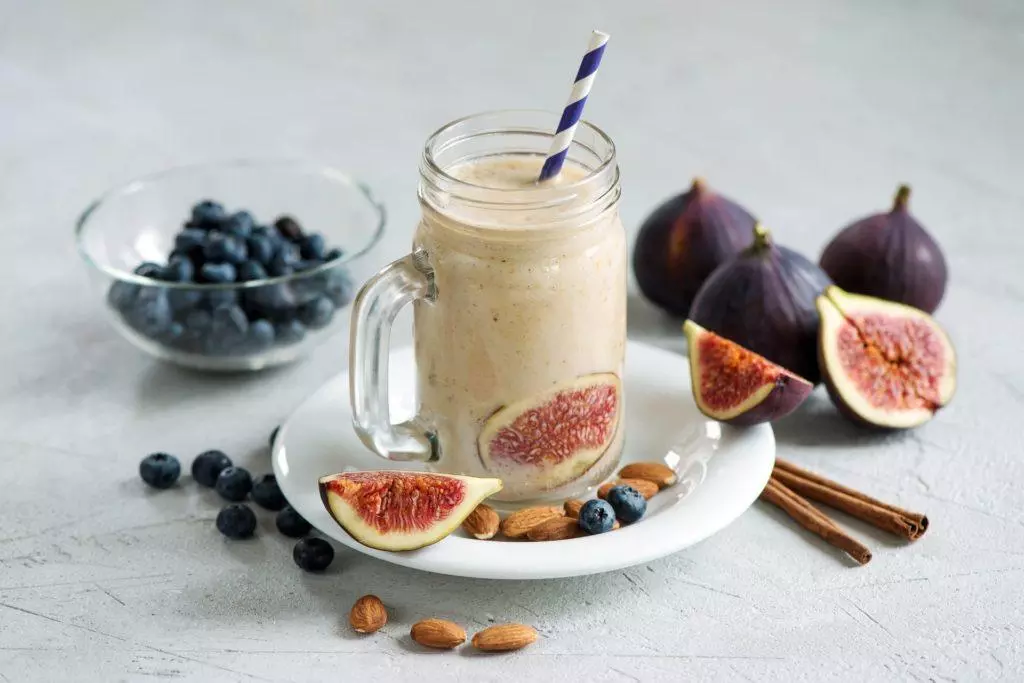
Smoothies and soups are also easy vessels to sneak in more ingredients: try adding nuts/nut butter, oats, seeds, and bananas into your smoothies. Put some coconut milk, whole milk, cream, cheese, and mixed nuts into your soups.
This can boost the energy content of the food you’re eating without being too much of a hassle.
I also suggest eating handfuls of nuts and dried fruit as a dessert or snack anytime you can!
Have multiple little meals and snacks
Eating little meals or snacks can be easier than having full meals when you’re trying to gain weight and aren’t that hungry. Sometimes your stomach can’t handle all the food from a meal at once and it’s better to break it down.
You can have your “regular” meals that you spread out into smaller meals throughout the day. You can also try some of the following snack ideas: spreading a generous amount of peanut butter on bread, dipping some apple slices into almond butter, having a banana with dark chocolate, dipping veggie sticks in hummus, enjoying some oatmeal with fruit… there are a lot of options!
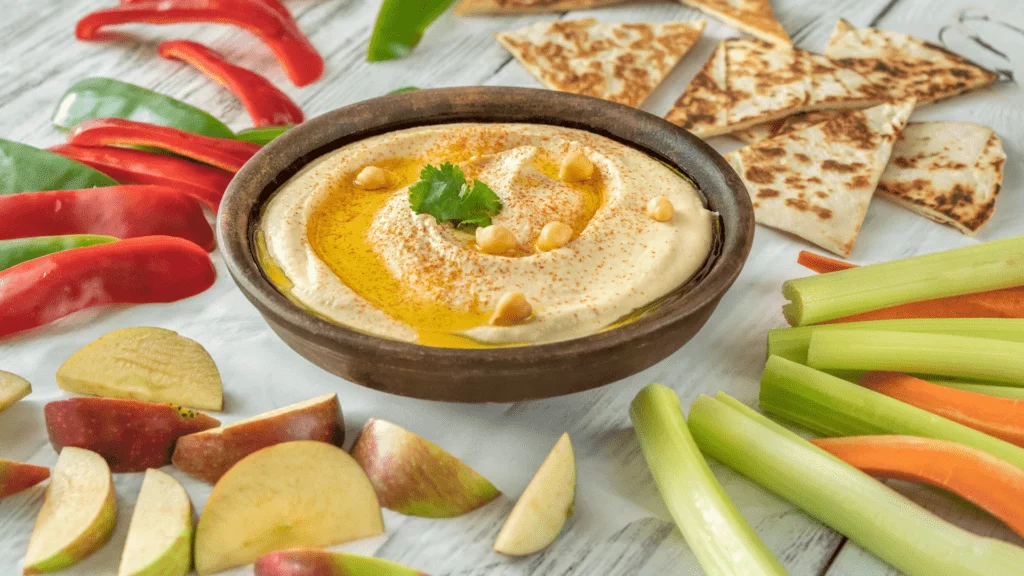
What to eat when nothing sounds good
Sometimes the issue with weight gain may be that when you’re hungry and ready to eat, nothing actually sounds good to you, and you end up skipping the meal. Here are a couple of things you can do in that situation:
- Have some easy meal options on hand at all times. It may happen that the idea of cooking something when it doesn’t even sound that good is enough to stop you from eating. I mean why should you waste time cooking something that you don’t even crave?
A solution to that would be to have some ready-to-go meal options in your fridge. Try to plan your meals (this has benefits!) and even do some meal prep when you can. If it seems too time-consuming for you, try to cook larger portions when you do feel like cooking so that you can have leftovers. You can even freeze them and have them later if you don’t feel like eating the same thing a few days in a row. - Turn to your all-time favorite foods. Everyone has a go-to food that they will never get sick of. For me, it’s pasta! I know that whenever I don’t feel like cooking or nothing seems good enough to eat, I can just have some mac & cheese and be totally fine.
Resorting to your all-time favorite food is a good solution when nothing else sounds good to you but you still need the energy and the weight gain.
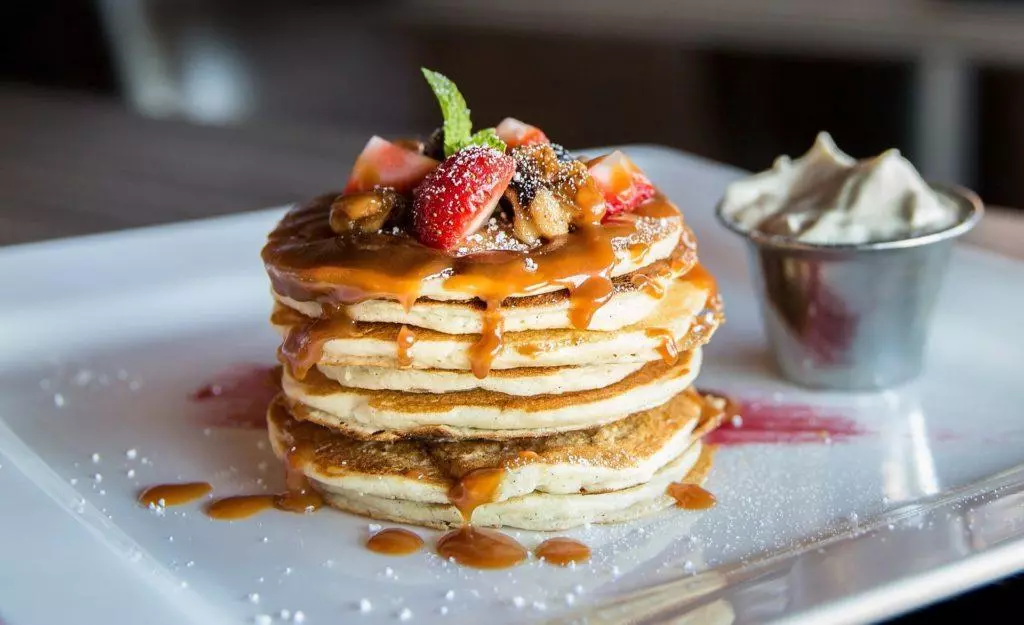
If you want more ideas, check out my article on what to eat when nothing sounds good !
How to deal with not feeling hungry
Sometimes the issue may be that you aren’t feeling hungry so it may be very difficult for you to eat your meals and gain weight.
Here are a few reasons why you may not feel hungry and how to deal with them:
- You aren’t physically hungry. You probably just have enough energy ► Add calorie and nutrient-dense foods to the meals you are able to eat, try having multiple snacks, and have soups or smoothies in which you sneak in nutrient-dense foods.
- You’re not in tune with your hunger cues. Being in tune with your hunger cues can be hard in the midst of diet culture and outside food rules. You may be so used to overlooking your hunger and fullness signals that you become unable to listen to them. ► The best way to get out of this situation is to get into intuitive eating. You can read more about it in my article: What is intuitive eating.
- You’re dealing with strong emotions. It’s also very common not to feel hunger for a while after experiencing a difficult life moment, or feeling stressed. ► Again, try to add calorie and nutrient-dense foods to the meals you are able to eat, try having multiple snacks, and have soups or smoothies in which you sneak in nutrient-dense foods.
Finally, you may also have a health condition that causes an absence of hunger, in which case you should visit your doctor. If you want more information, check out my article “why am I not hungry” HERE.
What about exercise?

Exercise may definitely cause confusion when it comes to weight as some use it to lose weight and others to gain muscle— so what should you do?
Well, you absolutely want to exercise when trying to gain weight, especially if you’re looking to build muscle. You just need to make sure that you’re not doing too much cardio or aerobic exercises, which are real weight burners. Try doing more “gym-type” activities like weight lifting, pushups, pull-ups, squats…There are tons of videos online to help you! This doesn’t mean that you have to stop everything else you were doing of course, as exercising is very beneficial to your health!
How to gain weight healthily in short
To gain weight in a healthy way, make sure that you’re eating full balanced meals and adding energy-dense foods to them, that you’re having multiple snacks, that you’re being intentional about the foods you eat first, and that you aren’t forgetting about exercise!
Finally, just like with weight loss, your lifestyle is super important—health should always be your n°1 priority! Make sure that you’re practicing self-care and caring for your mental health as well.
-Lucie
If you’re interested in nutrition, its impact on our health, and the science behind it, you should definitely read How Not to Die. In this book, Doctor Michael Greger, founder of Nutrition Facts, examines the top causes of death in America and explains how your diet can prevent— and in some cases even reverse— them. His advice is all backed by science and he writes in a very clear and entertaining way. This book isn’t a list of what you already know. It will teach you the keys to living a long healthy life, in a simple and practical way, and without spending fortunes on supplements and pills!
PLUS if you want to take it a step further, you can check out the How Not to Die Cookbook to implement the advice easily!


